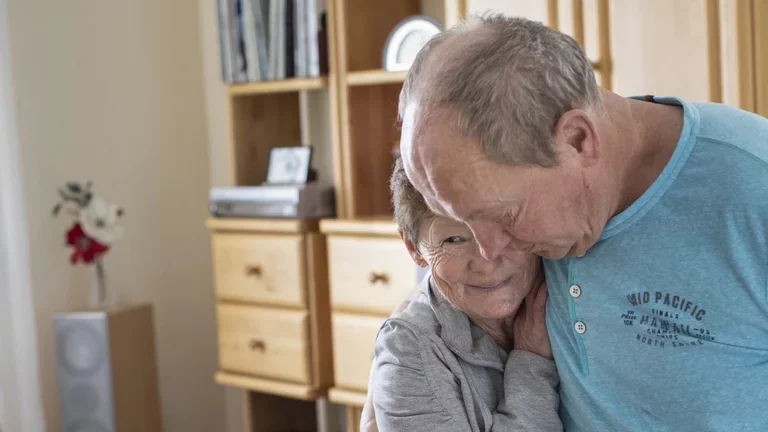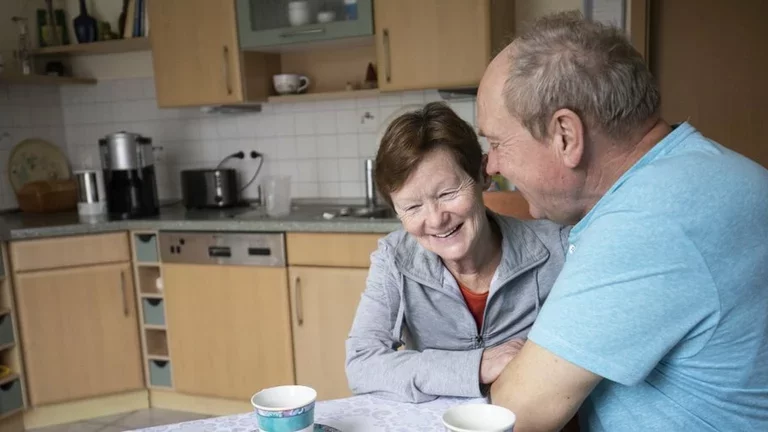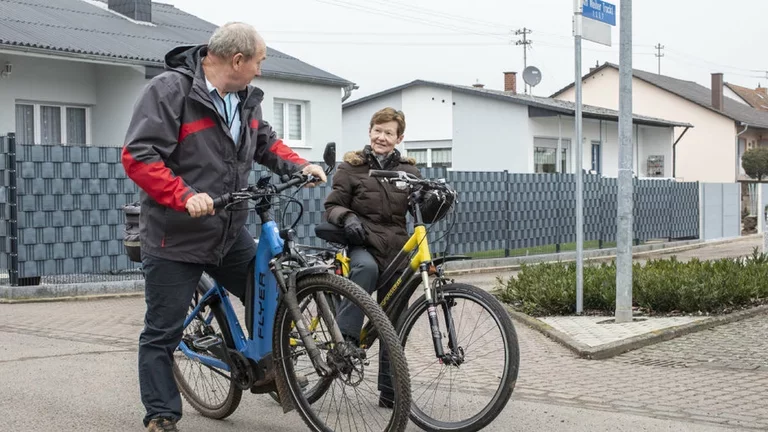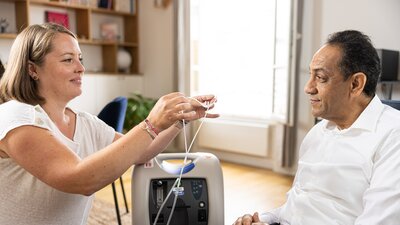Often overlooked by society at large, caregivers provide critical assistance to their sick loved ones. Be they men or women, active workers or retirees, these invisible helpers charge nothing for their time or effort. We met with Russell Patten, Secretary General of the European Parkinson's Disease Association (EPDA), which has had a partnership with Air Liquide since 2019. In this interview, he discusses the crucial role of caregivers, particularly when it comes to the health, finances and social status of patients.
Can you tell us a bit about your association?
Russell Patten : The EPDA is a pan-European federation whose membership consists primarily of national patient associations. Our purpose is to provide better information to people with Parkinson's disease, their caregivers, as well as healthcare professionals, in order to ensure better coordination between the various stakeholders of the "Parkinson's community". Above all, our goal is to enable patients to live full lives with their disease.
What does this partnership with Air Liquide involve?
R.P.: The EPDA has a long tradition of cooperating with private healthcare actors. For us, Air Liquide is a key player in the care pathway, along with patients, caregivers, and politicians, because they conduct research, are in contact with patients and doctors, sometimes develop treatments, and confer with authorities.
For 10 years, Air Liquide has assisted patients living with Parkinson's disease, as well as patients suffering from chronic diseases more generally. As such, they have been interested in the role of caregivers for a while now, having realized the major role they play in adherence to treatment.
Air Liquide has partnered with the EPDA to conduct a major international survey to identify avenues of improvement for patients and their caregivers, as well as to educate governments about the little-known but indispensable role of caregivers. This partnership is a "win-win" for both Air Liquide and the EPDA, and when I say EPDA, I'm including patients suffering from Parkinson's disease.
Russell Patten
Secretary General of the European Parkinson's Disease Association (EPDA)
How important is the role of caregivers?
R.P.: It is often the caregivers who ask the right questions and are in direct contact with doctors, because the patients are not always up to it. There is real synergy between patients and caregivers—we cannot separate them. As such, all stakeholders around the patient need to understand that their caregiver has a prominent role at the patient's side, and that they need to be supported. Nine times out of ten, it is the caregiver who makes the important decisions. Let's also remember that this role is not a simple one, and that it may affect their health, finances, and social status.
Are there any courses of action being considered to support caregivers?
R.P.: I think we need to shake up the healthcare system, introduce something new for the politicians and payers, review financial assistance for patients and caregivers. We also need to change research methods so that patients and caregivers can work more directly with private healthcare actors, since they are the ones that can indicate their needs to researchers.
In Europe, there are also inequalities in financial support systems for caregivers. While patients and caregivers in Scandinavian countries receive better support from social protection services, this is less the case in the countries of southern Europe. And yet, caregivers are a major boon for the economy. Patients who are assisted at home by a caregiver will, for instance, rely less on nurses, etc. What we want, then, is for caregivers in Europe to enjoy better conditions and a recognized status, which is unfortunately not the case currently.





